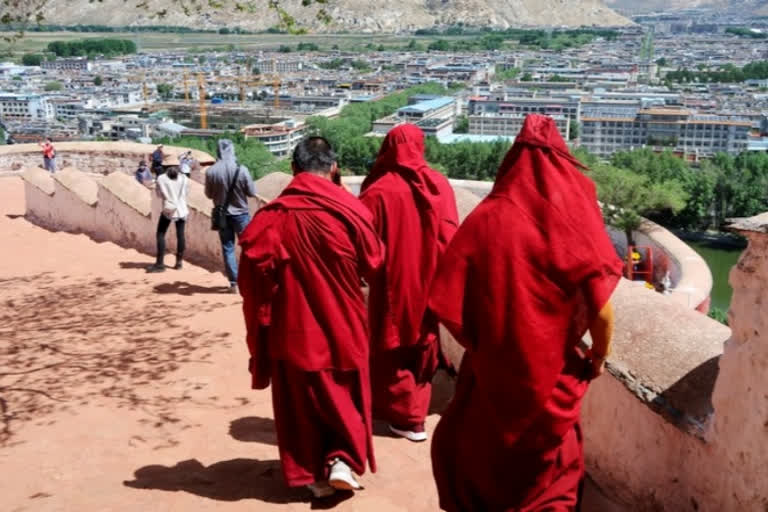Kathmandu: Tibetans hesitate to settle in Nepal due to the discrimination they face from the state. Tibetan refugees in Nepal are caught between China and the Nepali state, both of which are determined to prevent them from crossing the border, EPardafas reported. It also has implications for refugees wanting to come to India.
According to the EPardafas report, there has been a considerable drop in the arrival of Tibetans in Nepal. It used to average 2,000 annually till 2008. Since then, the figure has gone down to 200 a year. An estimated 4,000 to 9,000 Tibetan refugees in Nepal, up to 75 per cent of the population, today lack identification cards.
Tibetans therefore cannot apply for professional jobs or travel freely due to the absence of proper documentation. This leaves the already vulnerable population even more susceptible to exploitation, EPardafas reported. Nepal's Tibetan refugees are essentially stateless people. It is as if they do not exist legally, precisely what China wants. China's top priority in its relationship with Nepal is the control and repression of the Tibetan refugee community as Nepal, after India, hosts the largest community of Tibetan refugees in the world, EPardafas reported.
Amish Raj Mulmi's in her recently published book 'All Roads Lead North', said that, as early as 2002, Nepal had begun to face Chinese pressure regarding the Tibetans. For the first time, Nepal cancelled celebrations of the Dalai Lama's birthday. Mulmi also documents incidents from 2003, when Chinese military officials actually crossed into Nepali territory to shoot at American climbers, who they believed were Tibetans escaping Tibet, as well as in 2006, when Chinese guards shot and killed a 17-year-old Tibetan, who was part of a group of 76 attempting to cross across the border, according to the EPardafas report.
The Epardafas report says that, over the years, China has penetrated Nepali society to such an extent that the Chinese know details about Tibetans' activities even before the Nepalese police do. China instructs Nepal's authorities on how to handle Tibetan events and gatherings, informing them of the number of officers to be deployed and the policing techniques to be employed.
Under China's pressure, various Nepal governments have cracked down on the Tibetan refugee population in several ways. This includes suppressing peaceful demonstrations and restricting or banning celebrations of Tibetan culture and holidays. Police officers in Nepal are trained to prevent Tibetans from congregating.
Recently, Tibet Press reported that the COVID-19 pandemic has made life tough for Tibetans. The Chinese government's Covid policy has led to harsh, unjustified measures which seriously endanger the lives of the Tibetan people. The Covid outbreak in Tibet started on August 7, 2022, and it was followed by sudden lockdowns.
Chinese authorities in Tibet are clamping down on taking of photos or video recordings at local cemeteries in a bid to keep news of rising Covid deaths in the region from reaching the outside world, Radio Free Asia has learned, according to Tibet Press. Between 15 to 20 bodies are now transported daily to a cemetery in the Tibetan Autonomous Region's Drigung and to other cemeteries in the city of Lhasa, according to local sources. (ANI)



